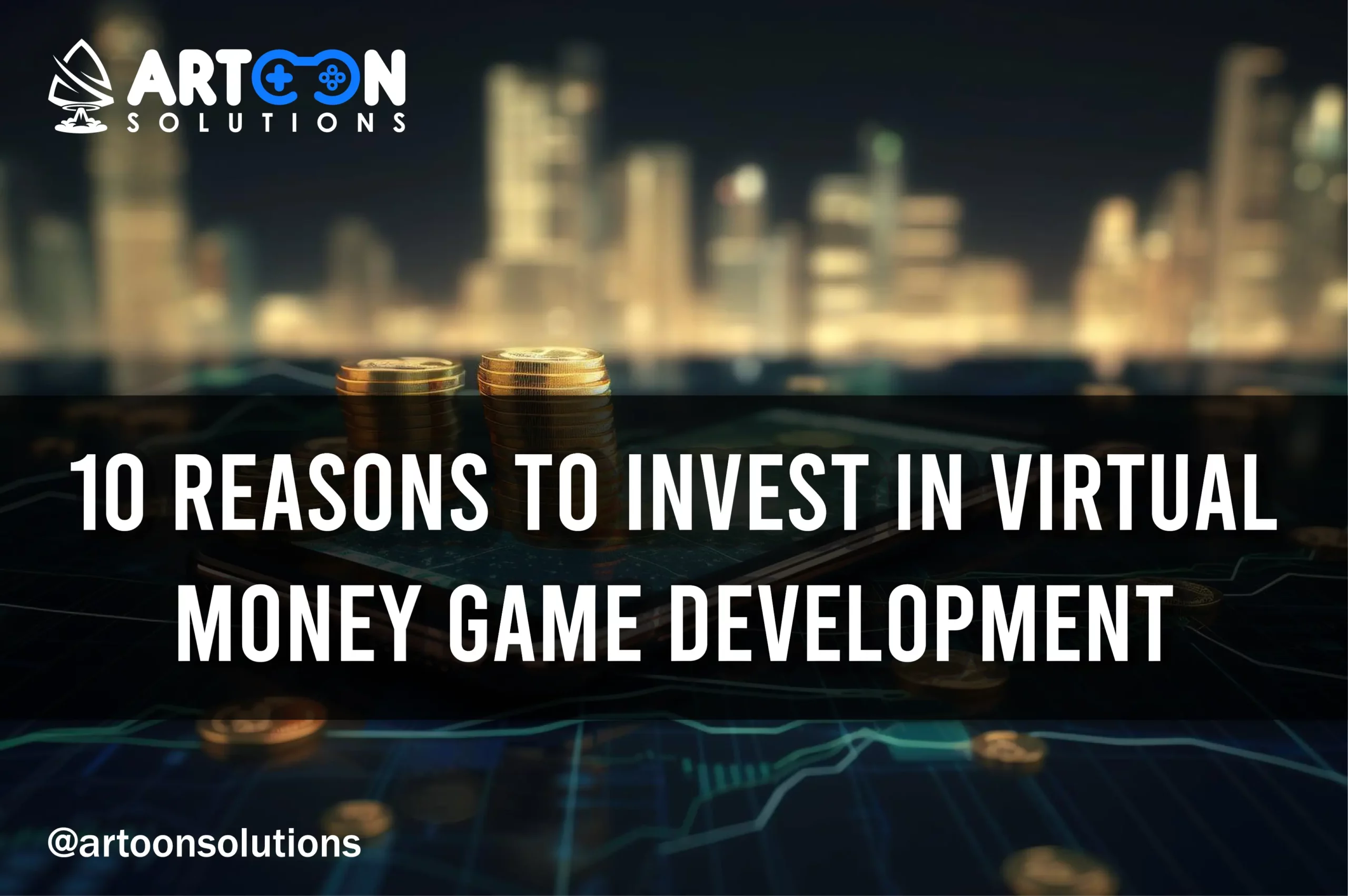- HR:+91-879-9184-787
- Sales:+91-832-0329-068

Virtual money game development has gained significant popularity in recent years, largely due to the rise of free-to-play games. These games offer players an engaging and immersive experience without needing an upfront payment. Instead, players can make in-game purchases using virtual currencies. In this blog, we will explore why investing in virtual money Game Development can be a lucrative opportunity for game developers and companies.
Free games or Free-to-play games, commonly known as F2P games are video games that can be played without any initial cost. Players can make in-app purchases or microtransactions to enhance their gameplay experience. These games often rely on virtual currencies & often called f2P game development, which can be earned through gameplay or purchased with real money.
Free-to-play games or free games to play have witnessed tremendous growth in the gaming industry in recent years. The accessibility and low entry barrier of these games have attracted a massive player base. With advancements in technology and the popularity of mobile gaming, free-to-play game development company has become a dominant player in the market.
Virtual money games are a subset of free-to-play games that utilize virtual currencies as a form of in-game transactions. Players can earn or purchase these currencies, allowing them to unlock additional content, power-ups, cosmetic items, or other virtual goods within the game.
Virtual money games offer multiple avenues for monetization, including in-app purchases, subscriptions, and advertisements.
With free-to-play models, virtual money games have the potential to reach a large and diverse player base worldwide.
Unlike traditional paid games, free-to-play games remove the financial barrier, making it easier for players to try and engage with the game.
Virtual money games provide a steady revenue stream through in-app purchases and virtual currency transactions.
Virtual currencies keep players engaged and motivated to progress in the game to earn or purchase more virtual goods.
Virtual money games offer opportunities for in-game advertisements, allowing developers to generate additional revenue.
Developers can cross-promote their virtual money games within their game portfolio, increasing visibility and player acquisition.
To reach a broader audience, virtual money games can be easily adapted and expanded to other platforms, such as consoles, PCs, and virtual reality devices.
Virtual money games provide valuable data on player behavior and preferences, enabling developers to make informed decisions for future game updates and monetization strategies.
By offering a rewarding and enjoyable gameplay experience, virtual money games can help build strong brand loyalty among players.
Developers must carefully balance the in-game economy to ensure that virtual currencies are valuable but not too easily attainable or excessively expensive.
Establishing fair gameplay mechanics and ensuring that players feel their investments in virtual currencies are worthwhile is crucial.
Developers must comply with legal and regulatory frameworks regarding virtual currencies, especially if the game involves real money transactions.
Start by defining the game concept, target audience, and core gameplay mechanics that will drive engagement.
Create captivating gameplay elements and mechanics that incentivize players to spend virtual currencies.
Utilize game development tools and technologies to bring your f2P game development to life.
Implement the game’s virtual currency systems, in-app purchase options, and other monetization features.
Thoroughly test the game to ensure a smooth and enjoyable user experience, and iterate based on player feedback.
Develop a comprehensive marketing strategy to generate awareness and attract players to your virtual money game.
Several virtual money games have achieved great success in the industry, such as “Fortnite,” “Roblox,” and “Clash Royale.” These games showcase the potential of virtual money game development and the lucrative opportunities they offer.
The future of virtual money game development looks promising. Advancements in technology, such as blockchain and virtual reality, will likely play a significant role in shaping the industry. Furthermore, integrating virtual money systems in non-gaming applications, such as social media platforms, could open up new avenues for developing virtual money games.
Investing in Virtual Money Game Development can be a strategic move for game developers and companies. With the rise of free-to-play games and their benefits, virtual money games provide ample opportunities for monetization, player engagement, and brand building. However, navigating the challenges and adhering to regulatory compliance is essential to ensure a successful venture in this space.
Virtual money games can be profitable through in-game purchases, NFTs, and a growing player base.
Attract a wide audience through engaging gameplay, NFTs, and cross-platform accessibility.
Key challenges include regulatory compliance, security, and balancing in-game economies.
Yes, virtual money games are often available on various platforms, including mobile, PC, and consoles.
Examples include Axie Infinity, Decentraland, and Roblox, which have achieved significant success in the virtual money gaming space.
Copyright 2009-2024
